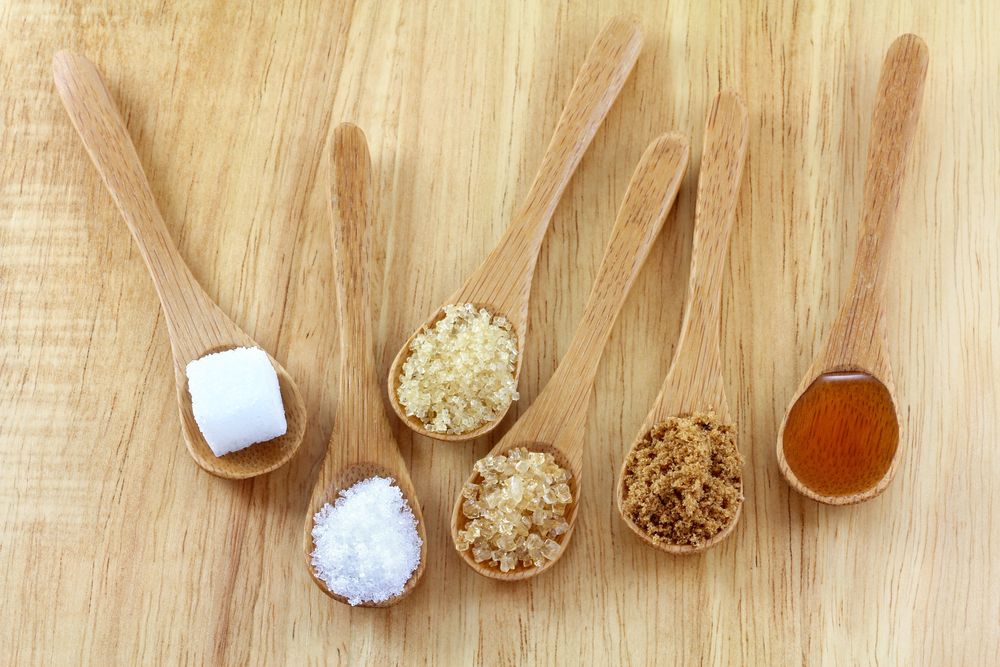Whether you're whipping up a batch of cookies, enhancing your morning coffee, or refining the taste of a savory dish, sweeteners are a kitchen essential. You might open your pantry doors to find an array of sweeteners you've used in various recipes over the past few months. However, not all sweeteners are created equal, especially when it comes to health considerations. While they all serve the purpose of adding sweetness to your culinary creations, some sweeteners may pose risks if consumed excessively. That's why it's beneficial to be aware of the healthiest sweeteners and those you might want to steer clear of.
In the past, refined sugars dominated the sweetener market. While they remain popular, the increasing demand for lower-calorie alternatives has led to a proliferation of sugar substitutes in recent years.
With a multitude of sweetener choices boasting various attributes like calorie count, flavor profile, and suitability for different uses, selecting the right one can feel overwhelming. To streamline your shopping experience, we've condensed the options into six of the healthiest sweeteners and identified six to steer clear of. Keep reading to discover more.
THE BEST SWEETENERS
1) Best: Dates

While pureed dates might not offer the ideal texture for sweetening your morning coffee, they are an excellent addition to baked goods. Dates not only impart the desired sweetness to your cookies and muffins but also provide essential nutrients.
Dates are particularly rich in fiber, boasting nearly 2 grams of it in a single date. To incorporate dates into your baking, start by making a paste. Simply blend about 2 cups of pitted dates and ½ cup of water in a food processor until a paste-like consistency is achieved, scraping down the sides as needed. Substitute your date paste in a 1:1 ratio for granulated sugar in your favorite baked goods recipes.
2) Best: Allulose
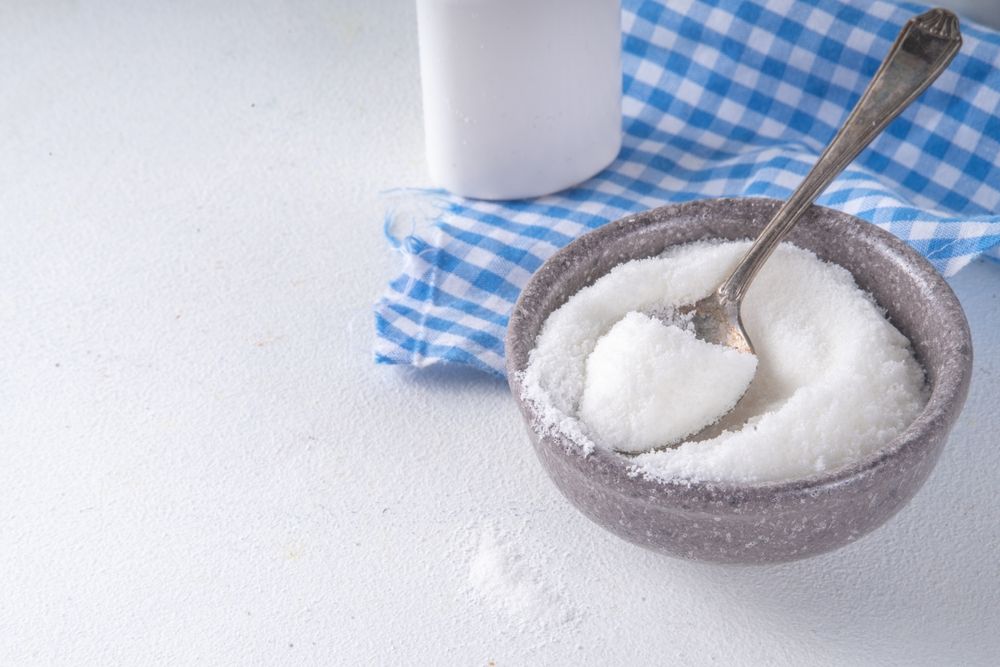
A relatively recent addition to the sweetener lineup, allulose offers a texture and flavor akin to sugar but with significantly fewer calories and carbohydrates. This sugar substitute occurs naturally in only a handful of foods, such as wheat and figs, and provides roughly 1/10 of the calories found in granulated sugar. This makes it particularly appealing for individuals monitoring their sugar intake, such as those with diabetes, or anyone seeking a sweet taste with fewer calories.
In fact, a study even observed greater fat loss among participants consuming allulose daily compared to those using sucralose, a popular sugar substitute. Despite being a newcomer to the market, allulose hasn't shown any apparent links to adverse health effects and seems to be a safe alternative. However, further research is necessary to fully grasp the long-term implications of its use.
3) Best: Honey
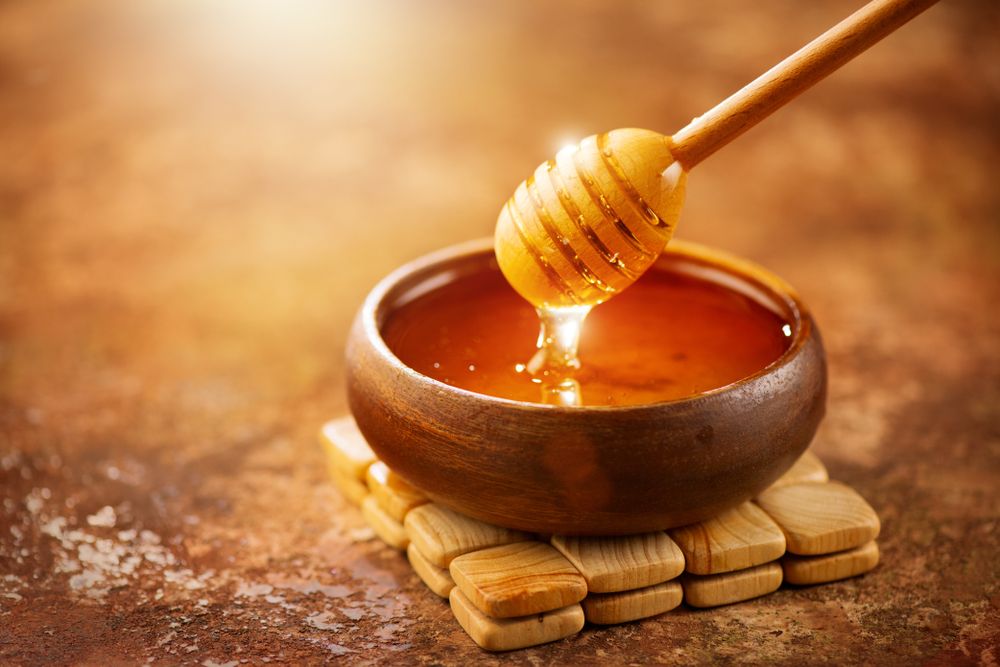
When seeking a natural sweetener for your cup of coffee or tea, honey often emerges as a preferable choice over sugar due to its perceived health benefits. However, it's essential to monitor calorie intake regardless of the source.
Opting for honey over sugar may offer several advantages. Firstly, honey's higher fructose content renders it sweeter, allowing for the use of smaller quantities to achieve the desired sweetness level. Consequently, this can lead to a reduction in overall calorie intake. Additionally, honey boasts antimicrobial properties and has been linked to the potential alleviation of allergy symptoms. These unique characteristics, coupled with its ability to provide sweetness while minimizing calorie consumption, position honey as a healthier alternative to sugar.
4) Best: Stevia
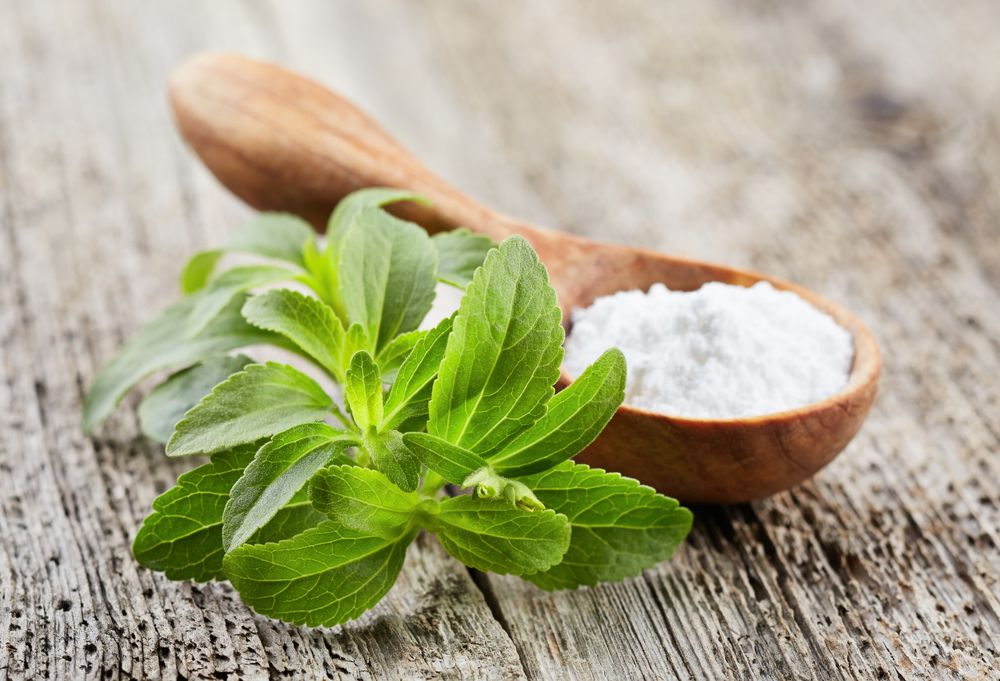
Growing in popularity over the past decade, stevia emerges as a highly sought-after, low-calorie sweetener suitable for both liquid and baking applications, offering a healthier alternative to sugar. Extracted from the stevia leaf, this sweetener is a remarkable 200 times sweeter than sugar yet boasts close to zero calories per serving, making it particularly appealing for diabetics and those seeking to reduce sugar consumption.
Beyond aiding in blood sugar management and weight loss, emerging research indicates the potential benefits of stevia in improving blood cholesterol levels. However, it's worth noting that stevia may impart a slight licorice-like aftertaste when used in baking. To counteract this, manufacturers recommend replacing half of the sugar in your recipe with stevia, maintaining a desirable flavor profile while simultaneously reducing the sugar content of your baked goods.
5) Best: Monk Fruit Sweetener
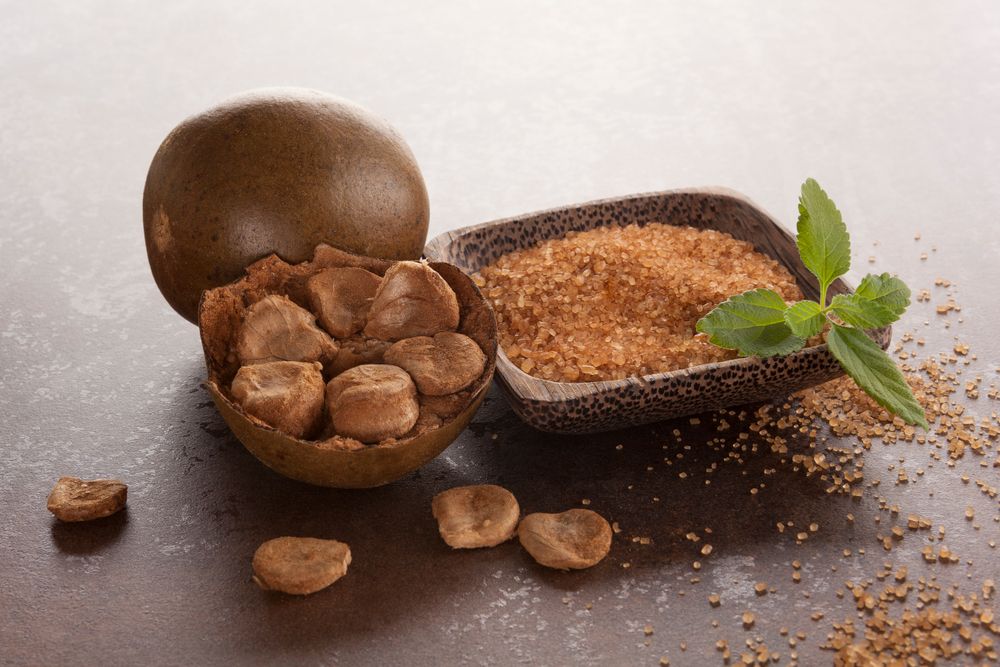
Monk fruit, a zero-calorie sweetener, surpasses sugar in sweetness. This attribute endows it with similar advantages to other low-calorie options, benefiting blood sugar and weight management. Moreover, monk fruit extract, derived from the fruit itself, boasts mogrosides, antioxidants that promote cellular health and mitigate DNA damage, thereby reducing the risk of certain health ailments.
In baking, monk fruit sweetener can be utilized either on its own or in combination with other low and zero-calorie sweeteners.
6) Best: Applesauce
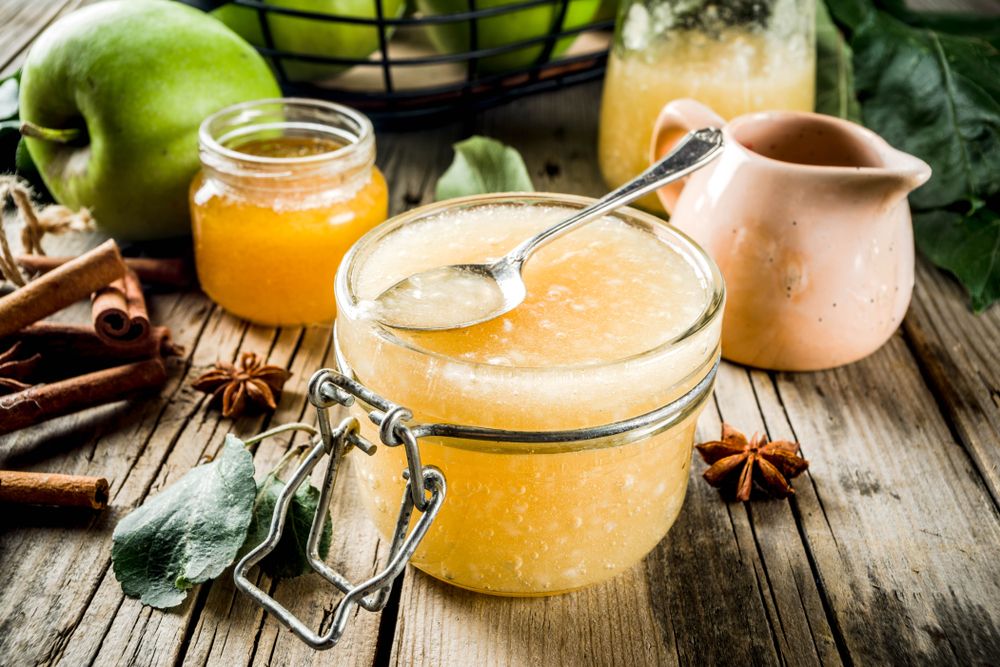
Applesauce presents a rich source of essential nutrients such as fiber and vitamin C, rendering it a superior option to nutrient-scarce refined sugars.
When incorporating applesauce into baking, you can seamlessly substitute it for sugar in a 1:1 ratio. However, given that applesauce introduces moisture while sugar contributes dryness, it may be prudent to slightly adjust the quantities of other wet ingredients in your recipe. This substitution not only imparts a delightful flavor to your baked goods but also enhances their nutritional profile.
To ensure optimal health benefits, opt for unsweetened applesauce to sidestep additional sugar. Moreover, in recipes where sugar content is minimal, applesauce can serve as a wholesome alternative to oil and butter.
THE WORST SWEETENERS
1) Worst: Refined sugar
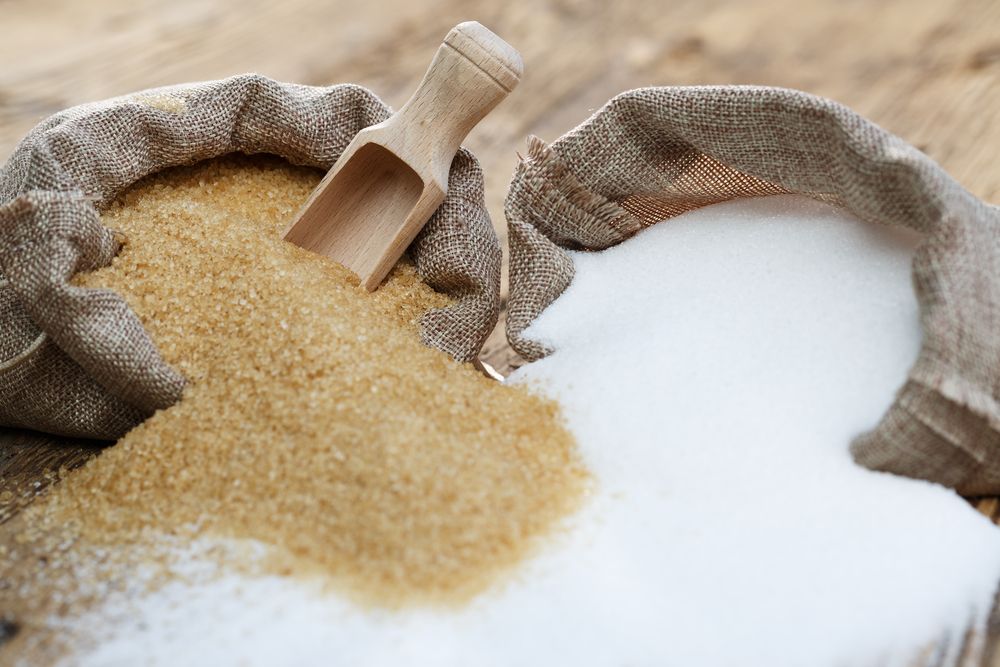
The conventional sugar commonly added to coffee or utilized in baked treats may pose significant risks to your health. Research suggests that dietary sugar can contribute to obesity, amplifying the likelihood of various health complications. While complete avoidance may not be necessary, reducing sugar intake is advisable for improved well-being. Opt for healthier alternatives from our list to replace sugar in your diet, and endeavor to minimize portions of added sugar in foods and beverages wherever feasible.
2) Worst: Aspartame
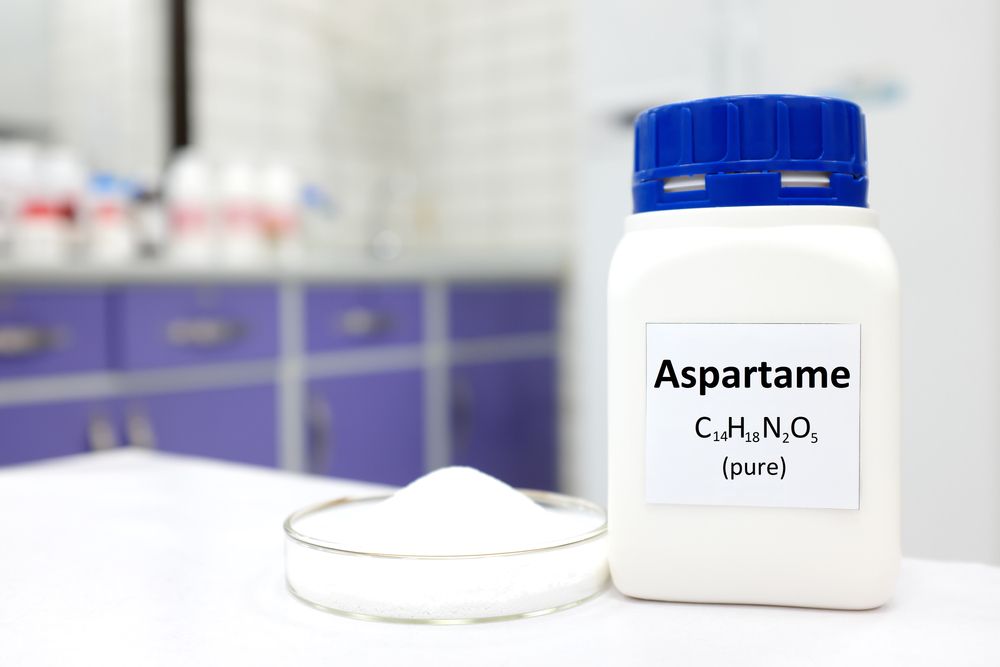
Aspartame, a prevalent sugar substitute, is commonly encountered in diet beverages and is the primary sweetening agent in Equal, recognizable by its blue packets found on restaurant tables. Despite being a zero-calorie sweetener with fewer calories and carbohydrates than sugar, aspartame is associated with several concerns.
Research indicates that consuming aspartame may have adverse effects on obesity, gut health, and glucose and insulin tolerance. Given these worrisome findings, it is advisable to steer clear of this ingredient and explore alternative low-calorie sweetening options.
3) Worst: Acesulfame K
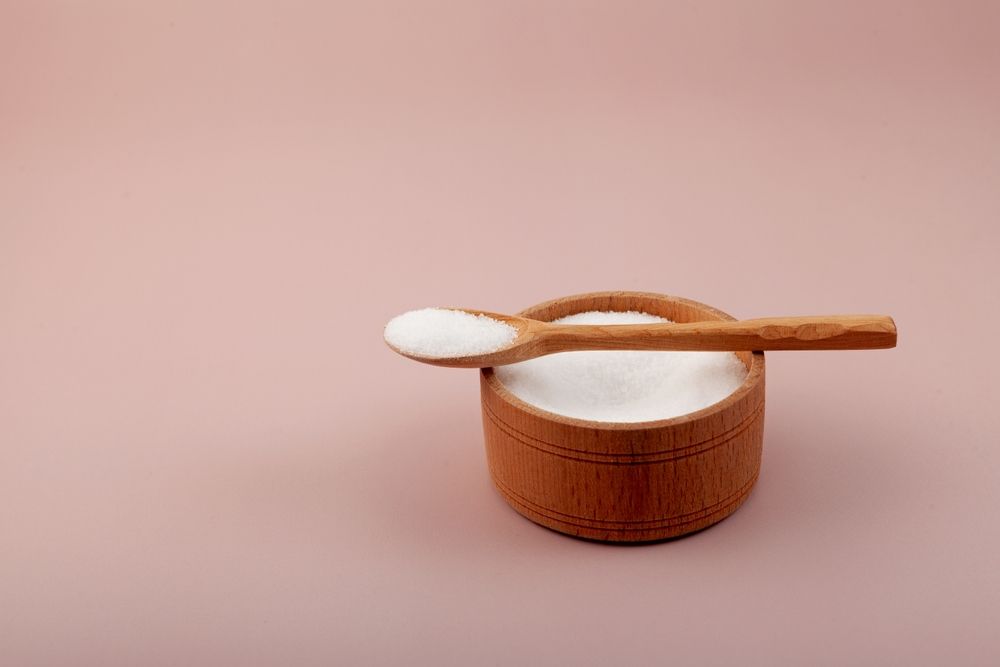
This ingredient is also known as "acesulfame potassium" or "Ace-K" on food labels. It is frequently found in diet beverages such as soda, juice, and some non-carbonated drinks. Ace-K is commonly combined with other artificial sweeteners like aspartame and has gained popularity as a low-calorie alternative to sugar.
Despite being FDA-approved, there are concerns regarding the data associated with this sweetener. One animal study observed a disruption in the gut microbiome and weight gain in male mice after four weeks of consuming Ace-K. This data suggests a potential negative impact on obesity and its associated chronic conditions.
4) Worst: Xylitol
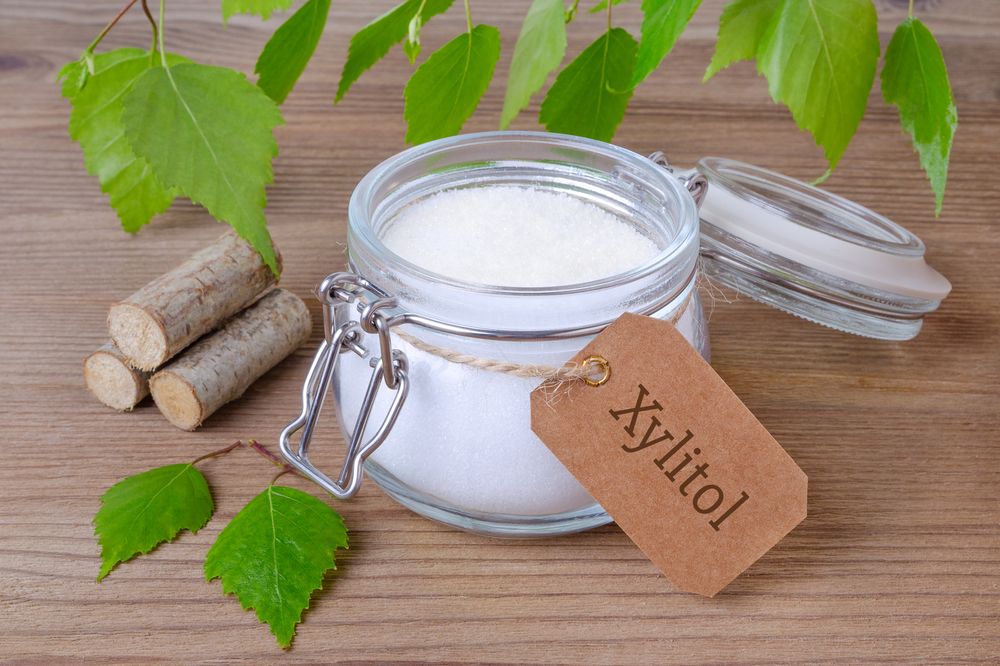
This sweetener falls under the category of sugar alcohol. While it is not entirely devoid of calories, it contains fewer calories than sugar, resulting in a diminished impact on blood sugar levels. This attribute is beneficial, but it's important to note that this sweetener can still elicit some discomforting side effects.
During digestion, sugar alcohols have the potential to draw water into the intestine or undergo fermentation by gut microbes. Consequently, this process may trigger digestive symptoms such as gas, bloating, and diarrhea. While these symptoms are typically not severe, they can cause discomfort for a while.
5) Worst: Sortibol
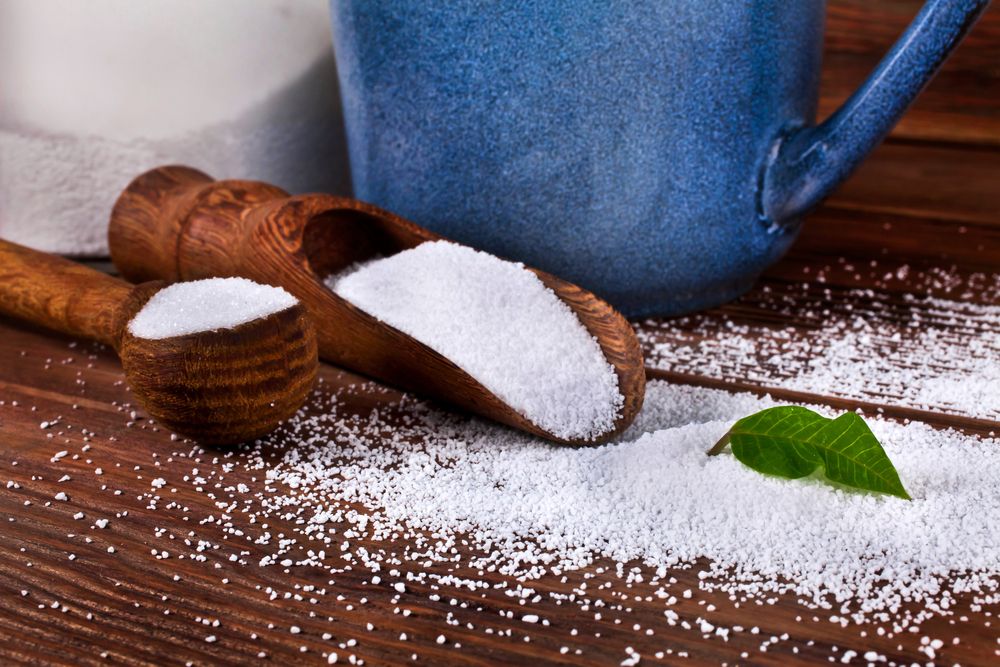
Sorbitol belongs to the category of sugar alcohols, which can potentially induce uncomfortable digestive symptoms. These compounds occur naturally in fruit and are also synthetically produced for incorporation into food and beverages as a lower-calorie substitute for sugar. Sorbitol, along with other sugar alcohols, is commonly present in diet products, including gum, sugar-free candy, and cough drops.
Similar to xylitol, sorbitol can elicit digestive-related side effects. If you experience such discomfort, it's advisable to avoid this ingredient. While some individuals may tolerate sugar alcohols without issue, others may experience varying levels of digestive discomfort.
6) Worst: Saccharine
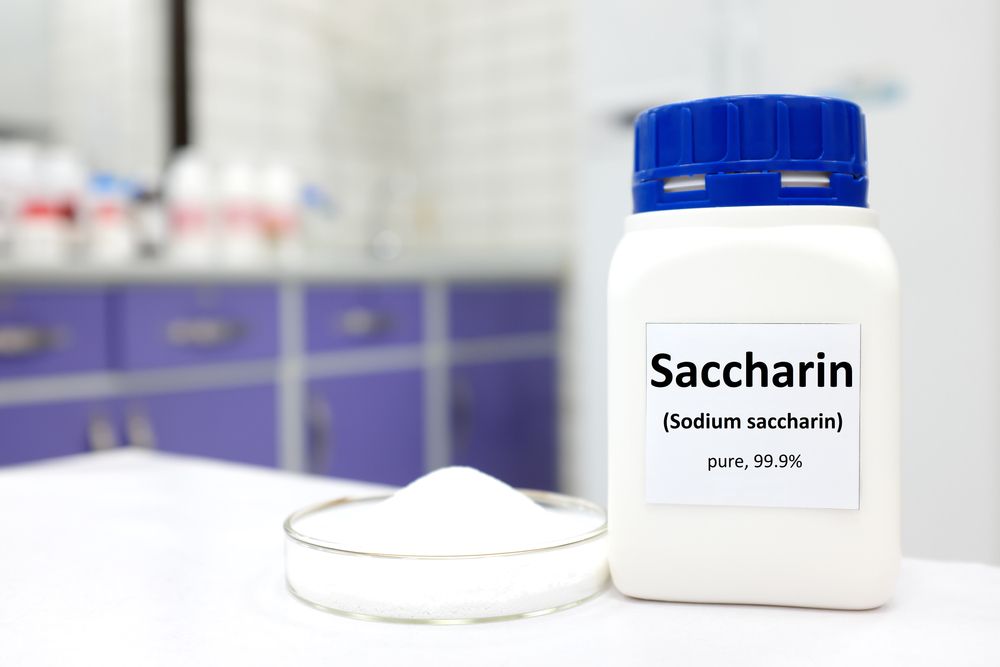
Saccharin, commonly recognized as Sweet'N Low, serves as the sweetening agent in the iconic pink packets. This artificial sweetener, boasting a sweetness level 300 times higher than sugar, allows for minimal usage while still achieving desired sweetness in beverages.
Saccharin is frequently combined with other sugar alternatives in diet beverages and low-sugar confections like candy, cough drops, and various diet foods. While several health authorities consider saccharin safe for consumption, there are concerning research findings associated with this ingredient. For instance, a study linked saccharin consumption to the development of bladder cancer in rats.
Although conflicting studies exist, it may be prudent to moderate saccharin intake and opt for alternatives listed as "best" in our recommendations.

